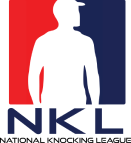Ad 00:06
Can’t Knock This is brought to you by Vis Sarris, a Pest Control distributor making a positive impact on young businesses. Along with the broad product portfolio of top brands. We offer exclusives like the intercare mosquito trap, and with the resources like pro training, inventory manager and pest web, and over 65 locations nationwide, we provide the products and insights to grow your business visit go www.vissarris.com/cantknockthis to learn more.
Sam Taggart 00:39
Hi Everybody, my name is Sam Taggart with the D2D podcast and I’m here with Mark England. But before I dive into this, I’ve got some fun announcements. So if you’re listening to this, we have all the mainstage speaker lineup for D2DCon, we have David Goggins, john Maxwell Bradley, Hal Elrod and Tim Storey all come in at D2DCon, which is one of the coolest lineups. So if you haven’t got your ticket, there’s only about 400 tickets left. So make sure to go your ticket January 8, the ninth This isn’t a virtual event. This is a live in person event, which is very unique for the COVID times we made it happen by getting the big enough big enough venue to where you can fit 500 people in it and still be 16 apart if we needed to be so anyway, that’s how they that’s how they figured out I kind of found a loophole anyway. So before, you know we dive into this, I just want to make sure I make that announcement. So you don’t like get bugged when these tickets sell out in the next like 30 days and you’re like wait a minute, I can’t come to door to work on this year. So just just giving you a heads up and the price is a little bit more this year because it is more exclusive. It’s more catered to business leaders and owners. So make sure to go check out the website d2dcon.com for tickets. Anyway, let’s dive into this mark. Talk to me. You are a language and story expert. So very, very, very relevant. You coach coaches, you’ve you’ve literally had over 5000 coaching sessions, spoke 500 times and you’ve been you know, created multiple brands and entrepreneur and over the last 13 years, you’ve had an awesome journey of developing this coaching and consulting business. And I’m excited to pick your brain man. Thanks for being on the show.
Mark England 02:19
Yeah,yeah, I’m here we, we everything everything paused for a second Sam, what’s going on? Thank you for that intro.
Sam Taggart 02:26
Yes. So anyway, so tell me where are you from? What? What are you about man? Not like what do you do necessarily? Like? What is Mark about as a human being? That’s a good question. I’m from born and raised in Richmond, Virginia. And yeah,
Mark England 02:50
I moved overseas when I was 23. Up until that point, I was a very untraveled person, I’d only had a passport once I’d gone over there for for about a year. And having lived in Thailand for 10 years, and Ecuador for a year and a half and traveled around and met a lot of the teachers that were most impressive to me in the in the light of story work. What I find is what I’m about is simplifying things, you know, my own internal and external dialogue i like i like simplicity when it comes to, to the language I like, I’m very much about living a simple life. Because at one point in time, my life was very dramatic. And what I find what I found and what I’ve what I found personally, and what I find professionally is that there’s a direct correlation betweeN drama, excess drama and on an end, lack of productivity, lack of ability to focus and momentum and results. So one of the things that I have is, okay, I’ll say the best thing I’ve ever done for myself is to is to simplify and clarify my language. And when I say language, I mean internal and external dialogue, internal dialogue, what I think external dialogue, what I say and what I write.
Sam Taggart 04:26
I like that.
Mark England 04:27
And that’s what we help people do. That’s what we help people do, whether it’s a whether it’s training groups, organizations, helping them develop their language in their culture or certifying coaches, which is the the two main revenue streams that we have currently. Yeah, there’s people seem to get better when when they get they get clearer.
Sam Taggart 04:58
I love that and that’s what we’re gonna kind of do So if you’re listening or watching this, the main focus is that, you know, some of the main things he teaches, is how to resolve conflict and have kind of conflicting conversation effectively, and the victim mentality, you know, I think in direct sales and door to door and you know, whether we’re leading a team running a business or just knocking on doors. We run into this all the time. I mean, if if any audience or any group that this is relevant information with it would be ours, because the language that we talk to ourselves in this competitive marketplace with rejection after rejection with the prima donnas, we manage sales reps doing whatever they do, and not working and working. And then all of a sudden, frickin like, who knows what they’re even doing. And the ever changing marketplace was such a human capital, high intensive like market, you know, you’re not dealing with a bunch of like numbers and clicks and things like that on a website, you’re dealing with people. And language is such an important element of how we communicate how we lead how we influence. And so super excited to dive into all these I have like 1000 questions, but we only have like 30 minutes. So let’s make sure we make this. Make this make this solid. So you were in kickboxing, and you were basically a kickboxing, kind of sewer and professor and you went to Thailand to train and you had nothing to do with language. At what point did you decide instead of using my body to fight and communicate, it’s about my words and language like when did you make this shift? To become kind of more of a language expert trained by, you know, Jeffrey Gitomer, who was just on the podcast and you know, train, you know, this whole journey like where did that? How did that start?
Mark England 06:51
I started with a lot of pain and suffering. So I did, I moved over to Thailand, jacked up my knee. Shortly after arriving. I was on the operating table six months in. And when when my career as a kickboxer stopped, I lost my enjoyment of living. And I held I use that experience, Sam, and this is we’re going to we’re going to talk about this throughout the entirety of this conversation, I use and what I mean by this is the victim mentality. I use that fail as proof as evidence that there was something wrong with me, because that was the driving force, that that drove me to be as competitive as I was, and to be as interested in proving to everyone that I was a tough guy, and that I was a hard ass. I was afraid, dude, I was afraid that I was afraid. I was afraid there was something wrong with me. I was afraid that I wasn’t good enough. And when I moved over, there was big news. It was big news, for me is big news for our community. And when I messed that whole thing up, I was like, yep, here’s the proof, you were doomed to fail, this was never going to work out. And so my victim mentality, which I’ll give you the definition for here in a hot second, went from zero to two. Well went to 10. From 10 to 200. nits stayed there, so much so that I don’t remember laughing for an entire year. And after an entire year of not laughing I might not have even smiled. I was so upset. I wasn’t I wasn’t upset, doesn’t even cut it. Man. I was I was somewhere between bitter and seething on the inside, and how whatever story we’re telling ourselves about ourselves on the inside, it shows up on the outside, for sure. And after a prolonged time of doing that, I realized thank God, I realized this Hey, dude, you can do this. As in this story. You can tell yourself this story for a pro for however long man, and I saw it dude, I saw that version of me that 55 6065 year old version of me way off in the distance. Just just wasted life wasted talent sitting there chewing on that same story of Whoa. And I literally said anything but that any I’ll take anything. But that outcome that version of me. And I was living in Bangkok at the time. I was an elementary school sports teacher, great gig. And I had four months paid vacation every year and I would go down to this this cleansing resort on the island of Koh Samui in the Gulf of Thailand. Land. And I found out about it through our vice principal he had gone down there it was, you know, you go when you pay and to not eat. It’s this really weird thing that you go when you do these cleansing programs. And I went down there and I did one and I felt better. I said, Okay, I can I can, I can participate differently in my life like this. So I kept going. The third trip down. I went to an emotional detoxification workshop one evening, and I snickered at the night when I heard about like, emotional detox. Anyway, the guy who was running that turned out to be one of my mentors and changed the trajectory of my life. I saw him take this woman who was hung up on a breakup, and it was it was a bad breakup. Her she, her boyfriend cheated on her the night before, when everybody knew about it, then he broke up with her the night before, the night after in front of everybody. And four years later, she’s still pissed. He took her through this story, first time, angry and tears, took her through it again. Second time changed a couple of the words now she’s sad, no tears, third time through, change something in the middle and something very important at the end, and then she was essentially emotionally neutral, to where she goes home. Yeah, that wasn’t gonna work. Anyway, he was actually kind of weird. That was in 2003. I said, That’s not my story. But that’s my story. I got up went to the internet cafe printed off a manual on how to do the work on myself. And for the next three years I studied. I studied, got all the DVDs in this system, I went and met to train with the founder in 2006 in Colorado, then I moved back to that same Spa 2007 January 17. And started as one of the counselors there. And I’ve been full time in the story work game, since best thing I’ve ever done for myself, is to learn more about the power and the mechanism of my language. What kind of words are forcing me to stare at the problems? What words are helping me see the solutions? What words are keeping me trapped in a stress response? What words are helping me relax into myself and sound way more professional, and have access to more information. The stuff that I’ve learned, I mean, this stuff is applicable. it’s applicable to every single endeavor that someone has going on in their life both both personally professionally, it also very much applies to sales. One of my hats that I wear in this company, it’s myself and my business partner, Adam chin, who mentored under Jeffrey Gitomer for six years, I find that extremely interesting, considering that you spoke with him this morning. I was horrible at sales. When I first started, I didn’t think it was important. I thought that people were going to enroll in my coaching packages simply because I was a good coach, not the case. as I progressed in with my skill at sales, one of the things that arguably the thing that benefited me the most, on an internal level is the story I told myself about myself. See, there’s this, there’s this stuff. Okay, it’s called conflict language. In pro capillary. It’s a subset of the English language that people use accidentally, to make more drama in their life, to force themselves to focus on worst case scenarios, to play the blame game to create excess indecision. And most people do it by accident, simply because they haven’t learned about it. It’s when someone tells themself a story about, you know, how, you know, it’s so hard to get ahead these days, or no one respects me, or, you know, she, she, she needs to give me more credit, or he needs to be a bet he needs to listen to me more in meetings. I’m making certain kinds of mental imagery, or here’s, here’s another good one. I think I’ll I think I’ll start networking. One day, there’s some indecision for you self talk, we send our self in distress responses, also known as sympathetic nervous system responses. And when I or you or anyone listening to this podcast goes into sympathetic nervous system response, stress response, guess where our breathing gets trapped, it gets trapped in our upper chest. And I don’t care what you’re selling, and how valuable it is and how much the person that you’re pitching to needs it. When you are talking and you are in a stressed state and you’re breathing is trapped in your upper chest. You’re going to sound like an amateur Yeah. You want to sound 100% you want to sound like a pro, get your breath down into your abdomen, where it belongs, you will sound different, you will have different you’ll have a different ability to, to inflect, you’ll have you’ll own the pauses, you know, we used to do a lot of presenting. Now, it’s pretty much on zoom calls and everything like that. And, and in our level two certification, we teach presentation skills. And that’s one of the first things that we talk about, where are you breathing? What are you breathing, when you’re presenting? What are you breathing when you’re selling.
Sam Taggart 15:37
Like this, because I think that we don’t even consciously think about that, when it when you talk about this conflict language, just even where it’s coming from, in our, like biology, in the sense when you say, you know, like, we see conflict, and naturally our nervous system or our amygdala is going to respond. And it’s going to put, like, literally physical changes in us. And it’s like, now that you bring awareness to it, it’s like I see it all the time in myself in conflict and marriage and conflict, and, you know, leadership and conflict. And whatever that is, I totally see that come up. So you just kind of say, hold on, let me shift my, let me make my extra my intake goes all the way down real quick. As I’m thinking, like, let’s make sure that everything goes down to the deep abdomen, and that just like step one,
Mark England 16:29
Actually, eventually step one, it’s going to be in the top three, for sure.allocating some of your mental real estate from time to time to pay more attention to where you’re breathing and how you’re breathing is going to benefit you in. I’ll go ahead and step out on a limb every aspect of your personal and professional life. Let me ask you a question, Sam, this is a layup. How important is good listening when it when it comes to selling
Sam Taggart 17:03
Really important.
Mark England 17:05
It’s extremely important when someone is breathing in their upper chest, whether they are not prepared, which is a major source of stress. Or they’re telling themselves a story that nothing ever works out for me. And I’ve got all the proof. And I’ll bring up the reticular activating system here in a hot second, because that’s important. And they put themselves in their stress in a stress state and their breathing in their upper chest. It’s known as amygdala hijack. It’s a you can look that up. And when someone goes into those stress states, their ability to listen goes down. We’ve all had the pleasure of trying to talk to someone who’s very emotional at some points in time. Okay, we have language in our language to describe that experience. It’s like talking to a brick wall. Okay, they literally can’t hear you. And when you’re selling, you want to hear everything as much as possible. And when you’re breathing Well, you’re downregulated. And you’re going to be able to pick up on a lot of the stuff that the amateurs will miss because they’re too consumed with themself.
Sam Taggart 18:15
Now I get write that down.
Mark England 18:18
Yeah, that’s the thing that helped me so much. And what I’ve found is that I set my breath for the sales call. And I talk less, I listen more, I asked better questions. I’m more creative. When you’re breathing Well, you’re going to be more creative and there is a creative aspect to selling. You’ve got to be able to creatively counter your, your prospective clients, objects, objections, you know, you’ve got to you’ve got to be able to have the right information at the right time. Okay, because it’s a it’s a, it’s it’s sales, you know, in the you know what, let’s, let’s get, let’s get let’s get real about this folks. At a high level. Sales is art. It’s an artistic, creative endeavor, and done well. You know, people want to be sold. That’s what that’s how I see it. They want to be sold. It’s like, it’s like somebody wants to be seduced, you know, nobody wants to be asked out on a date by someone who’s horrible at asking people out on a date,
Sam Taggart 19:25
or want to make it feel like yeah, they want to be like smooth and it’s like yes, experience and it’s like didn’t even know it’s happening, but they’re just engulfed and enveloped in this whole interaction.
Mark England 19:36
100% man and you make it smooth, you make it you you nail the transitions when your breathing is good. You’re You’re just we have we have a saying and in our coaching community good breathing equals good coaching. Let me tell you a story. And your audience’s story Sam because this is a this is top three in my opinion. Most important things to know about your self as far as the hardware you’re walking around with, when it comes to personal develop personal professional development. So 2017 I’m walking out my front door in the am, I’m going to give a presentation. I walk over to where I parked my car the night before. And it’s gone.I would have loved to have had a video of my face. I remember what it felt like, Okay. It was it was it was a slow dots connecting. Once those dots connected, I’m staring at this glorious piece of space where my car was parked the night before I get out my phone. I call the police says hey, police. My car got stolen. I need some help. Hold on, buddy.
Sam Taggart 20:49
We’re on the way.
Mark England 20:51
And I called my dad I said, Dad, my car got stolen. I got stuff to do. I’m in Richmond. He’s out at the farm. It’s an hour away. I need the farm truck is a true story. So I go and I get the farm truck. But farm truck is one of my father’s prized possessions. In 1985. He bought a brand new 1985 Ford F 152 tones of brown we call it brown and brown or off the showroom floor. It sits out under a covered canopy out on the farm. It’s in mint condition. And I took brown and browner and started driving it around Richmond, Virginia. And guess what I started seeing guess what kind of vehicle I started seeing more and more and more of as I drove around Richmond, Virginia.
Sam Taggart 21:35
your car or the old school truck.
Mark England 21:38
The old school truck. I saw I started seeing 1985-ish Ford F 150s. All over the place. There’s actually quite a lot in Richmond and only the people that drive those trucks know it. Have you ever had that experience, Sam, where you get in a new car, you start seeing that new car over and over and over again. You’re like, Where are these cars coming from? Well, yeah, that’s because we and everybody has that experience. We have a piece of hardware folks. It’s called the reticular activating system. And it’s involved in that phenomenon that experience when the particular act of activating system gets programmed. It goes on a search and edit mission. It goes looking for the thing that’s that’s deemed important. And it’s editing out all the other stuff. So once my it only takes it only took a couple of drives. Once I got my ra s and there’s a number of great five minute YouTube videos on the reticular activating system. Once it got programmed with the Ford truck thing, it started searching for the Ford truck. That model and it was while it was searching, it was editing out the blue vans and the white oldsmobiles. I didn’t see any of that. Okay. If you want even more information on this, look up the invisible gorilla study. That’s crazy. And this Yo, yeah, 100%. Okay, I’ll tell the story real quick, in the late 90s to social psychologists. They took seven college students, they dress three of them up in white outfits, another three in black. They gave the White Team two basketballs, the black team, to basketballs. And for one minute they filmed them passing the basketballs back and forth, the white team could only pass the balls to the White Team. The black team could only pass the balls but black T one minute that’s that’s the whole video. 30 seconds in. They got another college student to dress up in a gorilla costume. Walk out into the middle of the frame, turn up, look at the camera, beat his chest and then turn and walk out. That was one minute. That was the whole thing. Then they took 1000s upon 1000s they’ve done this so many times they get they get the same number. It’s it’s they’ve they’ve run this thing so many they wrote a book about it. It’s called the invisible gorilla phenomenon. The book is the invisible gorilla. And they gave they showed this video to college students all kinds of people really now. And they gave them one thing to do they they they directed their attention. They said count how many times the White Team pass the basketballs back and forth to the white team. They did and then they did they did and then once they’re done, you know how many times they had the answer. And did you see the gorilla?You think all of them would. 50% of people, only 50% of people see that gorilla in the video. You think everyone would see it? It’s a gorilla it’s in the video. 50% see it 50% edited out because they’re not looking for it. Now this why is this important folks because guess what? The reticular activating system is working for you or against you all the time. And it goes way beyond trucks and gorillas. Our language is programming, our reticular activating system, for better or for worse. And once it gets programmed, you got to you either. Well, you want to look at the stories that you’re telling yourself. Here’s a couple of quick stories from my coaching experience. This woman came in, sat down, she said, I’m having a problem with my marriage. My husband thinks I’m beautiful, and I refuse to accept it. And it’s, it’s really it’s causing problems. And she said, and I know where it’s coming from. I said, Oh, do tell Christmas, this little girl’s 10. She goes to her grandparents house as soon as they walk in the door that her great aunt is standing right next to the door. As soon as she walks in. Her great aunt leans down and goes, my you have a big nose, just like me. Thanks for that. Little girl tightens up, runs into the bathroom. What do you think the first thing she saw, looked at when she got in the bathroom was her nose, which was of course physically no bigger than now. Then when that was 10 seconds before her. Her aunt said that. But in her imagination, she’s got this huge honker and that and that there’s the proof that she’s not beautiful, never gonna be beautiful. And every time someone gave her a compliment, she had this filter, she just Nope. Get out of the way. And and this this goes both ways. is can I drop an F bomb on here? That’s fine. Okay, because it’s part of the story, folks. Yeah. The convert the others. It works both ways to folks. 2014 I’m giving a presentation works for better and it works for worse. This. I gave a presentation, there’s a guy setting a booth up right next to us. And I gave the presentation. He comes over afterwards. He heard everything I said he didn’t have a choice. He’s right there. He said, Man, that was great. You want to you want a good story about that stuff. And I’m like, sure. And he said my grandfather took me out in the backyard when I was 13 years old. He said I don’t remember the guy’s name. We’ll call him Johnny. So the little Johnny life, his life his life is interesting. You’re gonna have ups and downs and zigs and zags and twists and turns and, and you’re going to get some things right, you’re going to get some things wrong. Just always remember to err on the side of being a badass motherfucker. And he said his whole world opened up he said he felt he like, took a deep breath in and saw himself in his imagination, his confidence and his energy grew. As opposed to that little girl who got constricted and compressed. Remember when I was talking about the breath trapped? And he said, You know, I’ve made a lot of mistakes, but I’ve gotten a lot of stuff, right? Because I go after stuff. He said in that that’s an example of someone’s language and their stories working for the most people’s language in their stories works against them, and they don’t even know they don’t even know that’s happening. And when someone has stories on top of stories and the language to support it going on in the background, and and, and you know, the stuff that they say we had to we have an online course it’s called core language upgrade. We had to reshoot that thing, which was a big deal. For two dudes that are bootstrapping a company. You know, we talked briefly about core, excuse me, conflict language, the language of self sabotage, and conflict. We had to reshoot it. Because before conflict language was called conflict language it was it was called victim mentality language, which is accurate and too strong of a place to start the conversation. The definition of the victim mentality folks, I’m gonna take a little bit out of the middle. This is the verbatim definition of the victim mentality. The victim mentality is an acquired personality trait, where a person tends to regard himself or herself as the victim of the negative actions of others. Even in the absence of clear evidence, the victim mentality depends on a habitual thought process and attributions, that second sentence is right between the eyes right where it belongs. The victim mentality depends, as in it has to have a habitual thought process. habitual accurately implies duration and addiction. Yes, people can get addicted to their victim mentalities happens all the time, and it does happen. It happens over a prolonged period of time. And in my personal professional opinion, that is the thief in the night. It’s the most expensive thing on the planet. It robs people of their time, their energy, their the train wrecks their imagination, keeps their breathing trapped. It’s it’s all coming from a glitch in our language. That’s a lot of talking man. What do you What? What do you think?
Sam Taggart 30:27
Like I’m taking notes over here, I’ve got like, 50 things I just wrote down. So if somebody gets trapped in this victim mentality, and you notice them spiraling into this negative habitual conversation in their own minds, as a leader or mentor, coach, how do you? How do you rewrite that story with them? Like, you know, I coach a lot of CEOs I coach a lot of, you know, people and I struggle, like helping them shift how they see things like, you know, is there kind of a framework to a word conversation, like a way to rewind a little bit and help them see a new Ford f150? Like, you’re looking at some beater Oldsmobile like, hey, how do we dress this up prettier? Like, there’s got to be like, looking at the lambos out there, dude.
Mark England 31:18
Yes. Well, this brings up an interesting part of the conversation, or a different flavor of interesting. The definition of a spell. Yeah, I’m going there. Webster’s definition of a spell is a word or a combination of words of great influence. That’s it. And my you have a big nose just like me is a combination of words that greatly influenced that little girl, or always err on the side of being the person that is awesome. That’s also a combination of words of great influence. There is, folks, the first place to start, if you want to break these old spells, that are forcing you to see yourself as not good enough for pick your flavor of, of self sabotage, write those stories down. Write those stories down the difference between having a story running in your mind, and having a story written on paper. It’s night and day, it’s the difference between having a draft to hand in, in high school or college and not handing in anything at all. Once someone writes down their stories, their stories of the times when they last the times that that the things the rejections, you’re literally giving yourself distance breathing room, there, you’ve got it’s gone from in your, in your mind, in seemingly infinite looping around kicks you in the face, and then it’s gone. What do I do with that? Oh, I don’t like it, which is what leads most people what which is what leads people to do the two most common things that people do when it comes to dealing with their internal negative, quote unquote, negative stories, which is either to run from it or to try and fight it. You got to externalize it. Once the story is written down, it’s finite, you got a beginning you got an end. And then you can look at the words. Okay, you can look at the language, you can look at the story and start to gain gain, gain clarity on it. So first things first, write the thing down. And if you want extra credit, bonus points for it, write down the specific stories.
Sam Taggart 33:48
You just journal. So like just basically get a journal and just start right
Mark England 33:54
There that yes, then it seems that the written journaling is more powerful. And either way, either way, get it on paper. And that’s a very good start. Another thing that you can do, if you want to down regulate yourself is to talk a little bit slower. Talk about 10 to 15% slower, and have a conversation with someone at a slower pace. And watch what happens. Watch what happens to the way you sound. Watch what happens to how you breathe. Watch what happens to how you have access to the pauses more. You’ll be able to feel your language more definitively. talk less talk slower, get so much more done. And I’ve got more energy because of it.
Sam Taggart 34:53
I noticed that like I didn’t want to like comment, I’m like well, I’ve never heard how you talked prior to this, but I do Notice that you tend to slow down how you tell the story, how you present yourself, you’re a little bit more pause the methodical, and I was wondering if you’re doing that by design. you’ve trained yourself to do that. Like I was gonna say something.
Mark England 35:17
Yeah, both. I do that by design. And I have trained myself to do that. I pay attention to what feels the best for me as far as my pace of speech, and how fast I talk, or need to talk to keep my breath where I want it. Because there’s, there’s three levels to the game, folks, whether let’s just talk, sales or presentation skills, there’s insecure, there’s confident, and then there’s comfortable. Most people want to get to confidence. Because most people are insecure when it comes to presenting or pitching. I understand that. Okay. I live to that. And guess what, there’s a promised land past confident. It’s called comfort. And when you’re comfortable on stage, everyone knows it. World Class speakers, they are enjoying themselves. And there’s only one way to enjoy yourself. And that is to feel comfortable in your own skin. And when you’re comfortable your audience is is just date. They’re they’re on puckered, too. And they’re along for the ride. It’s just It’s same thing with sales when you’re comfortable. In your create the state. Let’s go Tony Robbins, right create the state first and foremost, it’s not excited all over the place. jazzed up to the gills man. No, no, no, no, you if you’re looking for longevity in your career, you want to get comfortable as soon as possible. And that’s also mastery. I don’t know one person that has mastered anything. Who, who, who’s breathing in their chest.
Sam Taggart 37:05
I’m sure like you being in a fighting world. I’m sure that was something you studied quite a bit to his breath. You know, as you do kickboxing, and there’s you. You know, I like watching some of those guys breathe and how they poise themselves. They’re comfortable getting like kicked in the face. Like it’s like, it’s crazy. Like, I mean, I’ve watched some of these fights and I go, I’d be crying to my mom. Like, I’d be like, screw this. Like I’m out of here this up like, but it’s it’s interesting watching fighters even.
Mark England 37:40
I 100% it’s the only sport I follow. I was not into breathing when I was competitive. I was not anywhere near that evolved. I do for sure. Pay attention to who the people that I think are the best to ever do it. How are they breathing? How are they moving? Let’s talk about fitness for a hot second. When when you talk about an athlete being in in the zone, where do you think they’re breathing? They’re breathing in their abdomen? Okay, there’s a theme here, folks. They’re not breathing in their upper chest, there’s a saying and fighting, where a guy’s looking clunky and mechanical. And they go back to the core and they say I just can’t get let my hands go. Okay, that’s because they’re in their head. They’re in the they’re there. They’re breathing in their chest. It’s just as mental chatter. You get your get your breathing low and slow, as we say, in the coaching game. And you’re going to have that flow, your training is going to take over, you know, you can, you can practice as much. You can read all the sales books, you can go to all the sales comp conferences, you can have all the techniques, all the rebuttals, all that stuff. And if you are uncomfortable in your own body, how do you think you’re going to go about delivering that applying those skills, it’s going to be tough to impossible.
Sam Taggart 39:03
Like that. So, as we kind of wind this down, where where do you feel, you know, you’ve obviously coached a lot of different from athletes fitness to sales and business to moms to marriages, you know, I mean, it sounds like you’ve had a wide variety and spectrum. What do you feel like is a common is a common like when you talk with this victim mentality? What do you think is a common trigger to that? Like, what is there any kind of like common, hey, pay attention to this. Here’s some warning signs, make sure you bring awareness to Xyz to avoid getting into that.
Mark England 39:44
Very good question. So when I get asked, generally, what do I do? I have I have two answers. I have a macro answer that I go to most of the time and then a microwave Sir, I go to all the time. So the the macro answer I’ve already said slow down your rate of speech, just for one conversation, that conversation is going to go different, it’s going to flow different, you’re going to sound different, you’re going to feel different, you’re going to have a different level of listening that that your if you’re, you’re very likely going to like, Okay. And you also then have that experience of what a slower rate of speech gives you. It gives you range. I mean, I can get really fast about things that I’m excited about if I want to go high like that. And I can also go low, when I need to make the points. That’s why I read that’s why I hang out at about 85% of my former rate of speech, because I have that range. Now. That’s the macro answer the micro answer. Let’s let’s have some fun with this and make it extremely practical for your audience. Sam, get a goal write down a goal. This is called soft goals. Okay, we’re going to do soft goals. And in the soft talk challenge, write down a goal something big fun, and wow, for 2021. And if you’re, if you’re listening, folks, right, you do the same thing. Because guess what, there’s an old saying for a reason, she who feels it knows it, or he who feels it knows it, I’m gonna help you feel something real quick. What’s, what’s your goal?
Sam Taggart 41:39
Next pack by the end of the year. Okay, so I’m gonna have a six pack. By the end of the year, I’m gonna have a six pack by the end of the year. Perfect. Put the word kinda somewhere in there. I’m gonna kind of have a six pack by the end of the year.
Mark England 41:59
One word, what happens when you put that one word into that into that sentence into that goal?
Sam Taggart 42:06
You gotta use it, this D legitimize theme legitimizes the intention.
Mark England 42:14
One of the pillars, folks, there’s only three, one of the pillars of conflict language, it’s called soft talk, this is where we start the micro conversation. We like things practical as you can practice this stuff. I’m gonna make a promise to you right here right now. And I stand by it. If you remove 55, zero 50% of the soft top key words in your language and they’re in there, you’re going to feel so much more solid and clear and confident you’re going to love it. These are the soft top keywords. And here’s the soft talk challenge. You take a clean sheet of paper and you write down these key words five times larger than you normally write, that’s going to get you the attention of your particular activating system. And you’re going to start to pick these words up more and more in your language and in other people’s language. The whole game starts with awareness folks. And once you have this, you’ve built this awareness which it happens quite quickly, then you can start to pluck this stuff out of your language. And you go from saying things like I I guess I’m procrastinating to I’m procrastinating then you get to change that. You know, I might need to put in a little extra effort on this project. Take out the might you maybe I need to spend some more time with the kids take out the maybe. So here are the key words folks. write these down five times larger than you normally write. And then you take the piece of paper and and put it up somewhere for one week. Okay, that’s all you got to do. And then the game is started we’ve gamified this thing and then you take a picture put it on Instagram tag me marking on 2020 I love that stuff. First off talk key word maybe second soft talk sort of
Sam Taggart 44:18
kind of guess I guess I need to get my I guess I need to finish my degree. Almost like it’s almost like I’m drinking too much coffee. Could I guess I could get back into the gym. Hope. Yeah, I try to always hope is a big one. I hear. It’s out there. There we go. So do you try.
Mark England 44:58
I’m gonna try to have a six pack by the end The year that this it’s it’s a it’s it is to a degree a funny conversation soft talk wrecks people mad. Pro law you raise your hand. Do you ever meet anybody who’s like Yeah, I love pro long bouts of indecision. Nobody says that stuff. One day, one day, one day, I’m going to make some changes be a two day person, folks, not a one day person. Let’s let’s take it from the top. Maybe sort of, kind of perhaps guests could hope. Try.
Sam Taggart 45:38
Almost like almost like, oh, hope those words.
Mark England 45:48
Raise your awareness about those words, use them less. And here’s where it’s gonna. Here’s one last thing on it. Here’s where it’s going to show up folks, your emails. Because you’ve got lag time, you can write the email, look at it. Here. We get this feedback so much for people, man, my email game has gone through the roof. I’m writing shorter emails of getting better responses. emails are like a ping pong game, everybody. Make them short. Make them sweet. Make them actionable. Do not send people war and peace via email. You’ll piss them off. I promise you.
Sam Taggart 46:21
If one of my employees gets an email longer than five sentences from me, they’re like what? sandwich off on me. Like shot. Anyway, so funny. Yesterday, a guy came in and he’s like, dude, like, are you okay? Like, I felt like you blew me up on the email. And I was like, What email is like, today just as long and I was like, What? shows me the email. It was like, a paragraph. I was like, Oh, good. super short. No, I love this. Hey, can I just for my sake, can I get the other two pillars? Yeah, soft talk. What
46:56
are the other two? Sure thing. negations negations. They force people to focus on worst case scenarios. The key words? Don’t? Can’t? Won’t. Isn’t? Shouldn’t haven’t. Not. You know, I don’t want to argue with you so much, Sam.
Sam Taggart 47:19
I can’t
Mark England 47:22
Keep spending all my money. What is that a picture of me spending all my money? I’m, um, I’m not going to keep eating pizzas. so late at night, what did I just make a picture of? What are we talking about? folks? We’re talking about how your language influences your imagination, your feelings and emotions, your breathing and your posture. When we talk about how language influences people. Those are the four things that we focus on. And that’s a whole area of study. That’s super valuable. You didn’t learn it in school, you learn spelling, grammar, and definitions. I’ve got a degree in education. I went through the public school system, okay. I’ve asked 1000s of people did you ever have any classes on the basis? I’m gonna say it the metaphysics of language people? No, no, no. And you did you learn about that, ladies and gentlemen, your your, your you’re going to you’re going to talk yourself into opportunity. Most people talk themselves out opportunity. That’s the second that’s the second pillar negations in the the third pillar is projections. That’s this is the venom. This is the this is where the blame comes in. key words, you they he
Sam Taggart 48:37
was negotiations and it was a thorough,
Mark England 48:40
soft talk. negations like the gate. And then projections. She makes me feel insecure. He made me think we needed to get married. My mom’s always talking down to me. Uh, my dad doesn’t see me as an adult. Take out dad and put in I I don’t see me as an adult. Where’s the leverage waiting for my dad to change his behavior so I can feel better about myself? or changing my own story?
Sam Taggart 49:17
I love it. Love it. That’s so good. So if people want to get more of this, because I mean it uh, where do they find you, man?
Mark England 49:27
Go to vocabulary.org go click on courses. Watch the video. We’ve got an online course 21 lessons, 15 minutes a lesson. Maybe 1010 minutes. They’re quick. You get access to the videos forever. And it goes into the art and science of this stuff. Conflict language we give taught it’s all about conflict language and it’s all about the the the antidote to it architect language. And if you’re looking for a A coaching certification that will help you understand your story, your client story resolve their issues and hang ups problems, fears from the inside out, go to enlisted.me. Watch the six minute video. Yeah, certified coaches like a Bossman.
Sam Taggart 50:18
I think anybody in our industry, you know, there’s a lot of leaders in our industry that never had proper coaching and leadership training. So I’d recommend checking his website out, because I think too often we just get we’re a great salesman, and then all sudden, we’re managing a team. It’s like, Well, nobody taught us how to manage a team. It’s like you’re the manager, the top guy, it’s like, just that doesn’t make me an awesome manager that just just made me a top sales rep. And also, now I got people under me because I’m recruiting my friends and you’re not a good steward over them unless you do something about it. So go check it out. And follow Mark England on Instagram On Facebook. You have a YouTube channel.
Mark England 51:01
Do not have a YouTube channel. Instagram is the place to go.
Sam Taggart 51:04
Marketing land on Instagram. Yeah. Well, any last advice for the DVD space? Like if you had to give one piece of advice, what would you What would you give?
Mark England 51:17
Connect a couple of dots. Connect a couple of dots with how your language is influencing you for better and for worse. use less soft talk only if you want to feel more confident and comfortable and come across that way to have a have a low and slow conversation. Slow down your rate of speech. Okay. Have an experience with it. And and
Sam Taggart 51:46
yeah, have fun. Have fun with it. Hello. Well, thanks so much, Mark. I look forward to connecting more in the future. I think there’s a lot like, man, I have a sales summit March and I’m like this would be so freakin good. So I’m a dude or dvcon You should come to a workshop or something. I think a lot of the listeners would really appreciate some of the stuff you’re jamming on right now. So you know, January the ninth I hope you can let’s jam after this and talk through maybe doing something there and let’s do a live speaking event. You know, some of these zoom things, you know, I mean, so let’s do it. Okay. Appreciate you being on the show mark. And this was this was a very insightful and shrinko extremely helpful. So thank you guys. Thank you again. Thank you for having me on Sam and thank you for listening everybody. You guys























